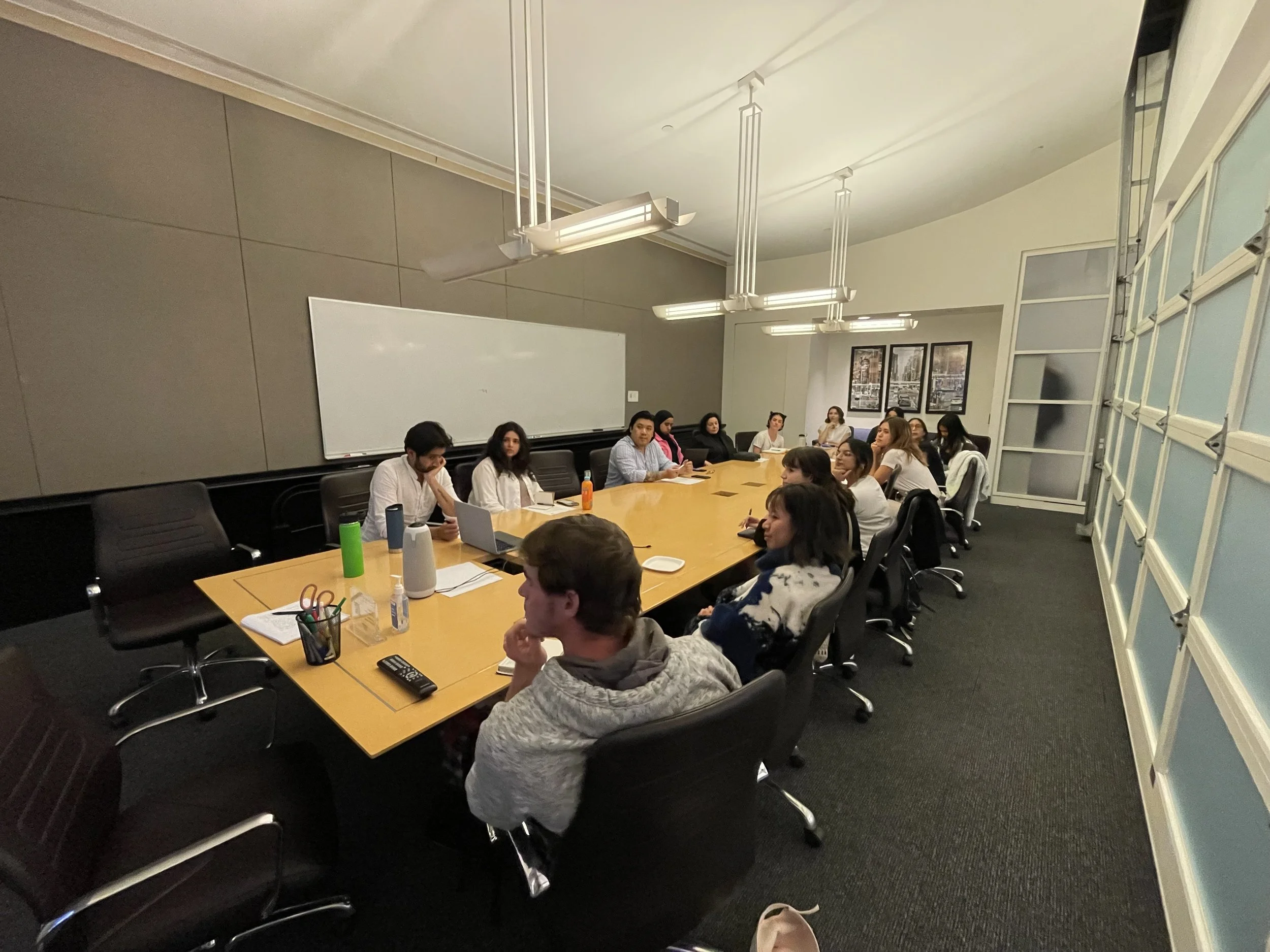All Tech Is Human x Civics Unplugged’s Intergenerational Youth Roundtable: A Discussion on Responsible AI
On May 25, All Tech Is Human and Civics Unplugged held their third intergenerational youth roundtable focusing on issues at the intersection of youth, technology, and responsible AI. The roundtable brought together approximately 40 global participants in-person and on Zoom. Participants came from a variety of backgrounds and stages in their professional careers across the private sector, civil society, and academia. Due to the hybrid nature of the roundtable, individuals from Australia, Beirut, Lagos, Paris, London, Eastern Europe, and several U.S. states were in attendance. Signifying the uniqueness and need that these roundtables have filled, some participants even drove to New York from Virginia to attend the event in-person.
The roundtable began with speaker Patrick Lin, author of Machine See, Machine Do, setting the stage for his discussion before splitting up into breakout sessions. The in-person breakout session heavily considered accountability and rethinking current terminology to reflect that responsibility lies with the creators, technologists, and deployers, not the technology itself. Part of this would entail having a more transparent process to facilitate the identification of unequal and biased systems. Moreover, ethics should be baked into the technology lifecycle from the beginning from fundraising to creation to deployment. However, the question of whether and how the current capitalist structure incentivizes and disincentivizes this was discussed, echoing themes from the previous youth roundtable. Yet the current demand from younger generations for more responsible tech products and the market’s attempt to meet this demand indicates that incentive structures can be shifted. How tech policies created in the north don’t always take into consideration circumstances in the global south and a technology’s deployment in the wider tech ecosystem were also discussed.
Similarly, the virtual breakout session yielded valuable insights on AI’s role in U.S. educational institutions. The discussion revealed that some young people often fail to grasp the implications of AI as much as they do for more propagated topics like climate change, despite the interconnectedness of these issues. Participants emphasized the crucial step of tooling AI responsibly and transparently in educational settings, ranging from early learning institutions to higher education. They highlighted the need for responsible integration and utilization of AI tools to get ahead of potentially nefarious uses, like academic dishonesty and biases in the automation of educators’ tasks. There was also a consensus on the importance of framing AI-related concerns through the lens of data privacy and “public good” issues to garner more support for and engagement with regulation. This platform for meaningful dialogue paved the way for future collaborations in fostering responsible AI practices around the world, both for the benefit of youth and society at large.
Key Takeaways:
Accountability: Hold technology creators accountable for technology and its impacts. This includes rethinking current terminology so accountability lies with human-decision makers.
Ethics: Include ethical framing from throughout a product’s lifecycle, including resourcing digital ethics teams.
Transparency: Push companies to provide transparency into their processes and structures to help reduce inequality and biases. This can also help inform regulation.
Regulation: Continue to demand regulation. In the U.S., legislators are beginning to work with researchers and civil society to regulate technology at the state and national level. Although a rather piecemeal approach, this shows that pressure on policy makers from constituents can produce action.
Education: Educate youth and users more generally to help them understand the impacts and harms of AI.
Did you know All Tech Is Human has a livestream series on Generative AI: Hype, Harms, and the Responsible Tech Community? Read about our latest livestream here.


